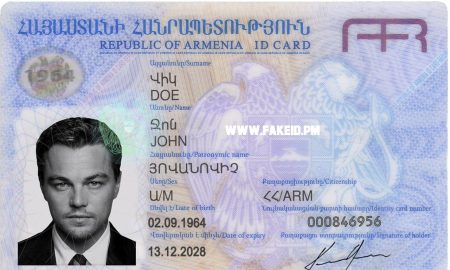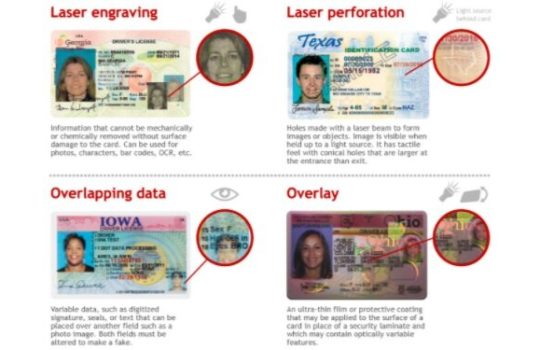Connecticut Fake Id Website
2023-07-05 2023-07-05 15:12Connecticut Fake Id Website

Connecticut Fake Id Website
Ukraine Fake Passport
Armenia Fake Id Card Scannable
New Mexico Fake Driver License
Title: Connecticut Fake ID Websites: Unveiling the Risks and Consequences
Introduction:
In recent years, the demand for acquiring fake identification (ID) cards has been on the rise, particularly among young adults seeking to gain entry to age-restricted venues or to engage in activities reserved for those over the legal age. However, the use and possession of fake IDs come with serious legal ramifications. This article aims to shed light on the risks associated with involving oneself with Connecticut fake ID websites, focusing on the consequences, legal implications, and potential harm caused by such activities.
I. The Proliferation of Connecticut Fake ID Websites:
Over the years, the internet has become a breeding ground for fraudulent websites offering a wide array of counterfeit documents, including fake IDs. These websites often target college students and underage individuals who want to bypass age restrictions at bars, clubs, or purchase alcohol or tobacco products illegally. The convenience of being able to acquire a fake ID from the comfort of one’s home has attracted many unsuspecting individuals, lured by the allure of joining the nightlife and indulging in activities prohibited to them legally.
II. The Legal Repercussions:
While it may be easy to overlook the gravity of possessing or using a fake ID, the law enforcement agencies in Connecticut and beyond take this offense quite seriously. Engaging in activities related to the creation, possession, or use of counterfeit identification can lead to severe consequences. In Connecticut, the penalties for using or possessing a fake ID include fines, suspension or revocation of one’s driver’s license, community service, probation, and even potential imprisonment.
III. Potential Identity Theft and Fraud:
One of the significant risks associated with acquiring a fake ID from online sources is the potential for identity theft and fraud. Illegitimate websites often require sensitive personal information, such as name, address, date of birth, and even social security number, increasing the chances of falling victim to identity theft. These fake ID websites may operate with ulterior motives, using the acquired information for illegal activities or selling it to third parties for fraudulent purposes.
IV. Compromised Quality and Subpar Security Features:
Given that fake ID websites operate clandestinely and outside the realm of legality, one cannot expect quality assurance or the inclusion of genuine security features. Counterfeit identification obtained from these online sources is often poorly manufactured, making them easily detectable by trained bouncers, bartenders, or law enforcement officers. The low-quality cards can have obvious flaws in print, lamination, or holograms, placing users at even greater risk of legal repercussions due to their easily recognizable nature.
V. The Ethical Dilemma and Moral Implications:
Beyond the legal and security concerns, indulging in acquiring or using fake IDs raises important moral and ethical questions. The act of deceiving authorities, businesses, and establishments to gain entry or access services not intended for one’s age group highlights a lack of respect for rules, regulations, and societal norms. Acquiring a fake ID and cheating one’s way into age-restricted spaces undermines the integrity of the system and may contribute to irresponsible behavior, jeopardizing the safety and well-being of individuals involved.
VI. Parental Engagement and Education:
Parents play a crucial role in guiding their children through the challenges of underage restrictions and the desire to engage in adult activities prematurely. Engaging in open and honest conversations about responsibilities, risks, and the consequences of using fake IDs can effectively dissuade adolescents from seeking counterfeit identification. Additionally, parents should inform their children about the potential ramifications, emphasizing the importance of patience, personal growth, and adherence to the law.
VII. Alternative Activities and Safer Outlets:
To mitigate the allure of using fake IDs, communities, schools, and organizations should create alternative activities and safe spaces where young adults can socialize and engage in age-appropriate recreational pursuits. Building and promoting a community environment that offers exciting options for entertainment and cultural experiences can help redirect the focus away from illicit activities.
Conclusion:
While young adults may be drawn to the idea of acquiring a fake ID to access restricted spaces or engage in activities reserved for older individuals, the risks and consequences associated with such actions should not be overlooked. Connecticut fake ID websites, and similar platforms, pose substantial legal, ethical, and personal risks, ranging from legal penalties and identity theft to compromised security features and moral dilemmas. Education, parental guidance, and the creation of alternative avenues for entertainment can all contribute to deterring individuals, particularly the youth, from participating in these unlawful activities and promote responsible behavior.
















